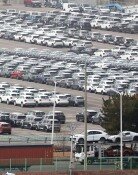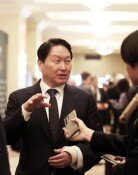Tax and Public Utility Charges Will Continue to Increase, One after Another
Tax and Public Utility Charges Will Continue to Increase, One after Another
Posted November. 02, 2004 23:04,
It is forecasted that taxes and public utility charges will rise next year, burdening the livelihoods of the people.
It is worried that the stagnation of consumption might worsen as public fees increase, while income figures stay the same due to the economic slump.
Increasing Real Estate Tax-
After the aggregate land tax increased by an average of 28.3 percent from last year, complaints from angry taxpayers are rushing in to the local governments. The number was the biggest leap ever since the aggregate land tax was created in 1990. In a few regions, the tax has almost doubled from what it used to be.
It seems that the real estate taxes will further increase next year. The government has already decided on a policy to continue to increase the real estate tax. Moreover, the government has decided to impose taxes based on the National Tax Services tax standard value, which is similar to the market price.
Especially, it seems that the real estate taxes of several regions in Seoul will increase to three times as much as what they were. Also, it is forecasted that many people will be struck by the tax bomb, if they are classified as owners of several houses and land and an aggregate real estate tax is levied.
Increasing Automobile Tax-
Kim Sung-soo (37, Seoul), who owns a Starex for delivery business, is infuriated when he thinks of the automobile tax he has to pay next year.
As the automobile law is revised, seven- to ten-seater automobiles are now classified as passenger cars instead of vans, and a tax will be levied. Accordingly, next year, owners of vans will have to pay taxes equivalent to 33 percent of the taxes that owners of passenger cars with the same engine displacement pay: the percentage will increase to 66 percent in 2006, and 100 in 2007. For instance, an automobile tax of 65,000 won will increase to 330,000 won next year, and 850,000 won in 2007.
The government explains, Although many automobiles such as the Carnival and Musso are actually used as passenger cars, they were classified as vans, and only a little tax was levied.
However, a number of self-employers are raising objections, saying, Not many people are using Starexes as passenger cars, at least.
Moreover, the burden of light-oil (Diesel) car drivers will increase even more, as the government decided to raise the price of light oil next year through modification of the tax system on energy.
Increasing Utility Charges-
Since November 1, the utility charge on gas has increased by 6.9 percent. Korea Electric Power Corporation (KEPCO) is also promoting to raise the utility charge on electricity starting next year. Recently, Han Jun-ho, chairman of KEPCO, said, Factors such as the increased cost of fuel have caused five to six percent increases in utility charges on electricity. Raising the utility charge will be discussed with the government at the end of the year. KEPCO explains that increasing the utility charge is inevitable, since the charge stayed frozen since November 2000, when the charge was increased by four percent.
Health insurance premiums are also likely to increase, as they did at the beginning of every year. Health insurance premiums have increased by 8.5 percent in 2003 and 6.75 percent in 2004.
Fire and marine insurance companies are also promoting plans to increase automobile insurance premiums next year. It was reported on November 2 that fire and marine insurance companies are making progress to adjust automobile insurance premiums. Due to the increase of oil prices, an increase in public utility charges seems inevitable.
The government has also made plans to increase the price of cigarettes by 500 won per pack at the end of this year, and by another 500 won next year.
Jong sik Kong Tae-Hoon Lee kong@donga.com jefflee@donga.com







